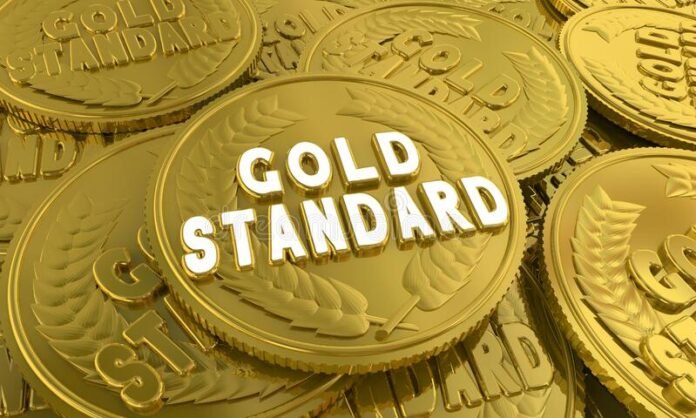Gold, the shimmering symbol of wealth and stability, has long drawn investors seeking to secure their portfolios and potentially profit from price fluctuations. But before diving into this precious metal, it’s crucial to understand both its alluring potential and inherent risks. Let’s explore the two sides of the golden coin.
The Alluring Potential
- Safe Haven: During economic downturns or geopolitical turmoil, gold often shines as a safe haven asset. Its limited supply and historical stability attract investors seeking to protect their wealth from inflation and currency fluctuations.
- Portfolio Diversification: Adding gold to your portfolio can diversify your holdings and potentially reduce overall risk. Its price movements often exhibit low correlation with other asset classes, providing a hedge against broader market declines.
- Tangible Asset: Unlike stocks or bonds, gold is a physical asset you can hold and touch. This tangible presence can offer some investors psychological comfort and peace of mind.
- Potential for Appreciation: While past performance is not a guarantee, gold has historically exhibited long-term price appreciation. This potential for capital growth can be attractive to investors with a long-term investment horizon.
The Glittering Gamble
- Volatility: Gold prices are inherently volatile and can experience significant fluctuations in response to various economic and geopolitical factors. This volatility can lead to substantial losses if you need to sell quickly.
- Limited Income: Unlike stocks or bonds, gold does not generate any income, such as dividends or interest. This means your returns are solely dependent on price appreciation.
- Storage Costs: If you choose to invest in physical gold, you’ll incur storage and insurance costs. These costs can eat into your potential returns, especially for smaller investments.
- Liquidity Concerns: While readily traded, physical gold can be less liquid than other investments like stocks or ETFs. Selling at short notice might require accepting a lower price than the current market value.
Weighing the Scales
The decision to invest in gold depends on your individual risk tolerance, investment goals, and overall financial situation. Consider these questions:
- How comfortable are you with potential price volatility?
- What is your investment time horizon?
- What portion of your portfolio are you willing to allocate to gold?
- Do you have the resources for secure storage and insurance if investing in physical gold?
Beyond the Binary
Remember, gold isn’t a “one-size-fits-all” investment. Consider these alternative approaches:
- Gold ETFs: Offer easier access and lower storage costs than physical gold.
- Gold Mining Stocks: Can offer higher potential returns but come with greater risk due to their dependence on the mining industry’s performance.
- Small Allocation: Including a small percentage of gold in your diversified portfolio can provide some protection without exposing yourself to excessive risk.
Remember:
- Do your research and understand the risks involved before investing in gold.
- Consult with a financial advisor to discuss your individual circumstances and create an investment plan aligned with your goals.
- Gold can be a valuable addition to a diversified portfolio, but it’s not a guaranteed path to riches. Approach it with caution and informed decision-making.

